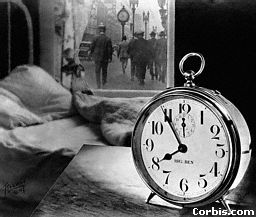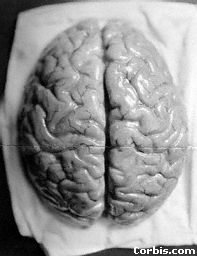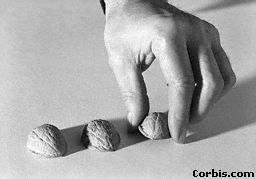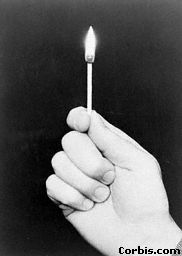| Testing Your Aptitudes Some students don't know what they want to study in school or what to do later in life. Testing aptitudes might assist the student. I learned about my nine exceptional aptitudes and how some of them interfere with other aptitudes. Knowing about myself helped me eventually decide to become a teacher. I recommend Dr. Michael Fish in Plantation at 954.370.7692 drmikefish@bellsouth.net For people outside South Florida, I recommend the testing centers of Johnson O'Connor Testing for Teens members.aol.com/jocrf19/ Why does testing aptitudes help students who are unsure of their "path"? The following material comes from the Johnson O'Connor web site: What type of college should I attend? What should I choose for a major? How do I make an intelligent choice of careers, so that my working years will be happy, productive, and successful? These are the questions that high school juniors and seniors ask — or should ask — themselves. Frequently asked questions How can testing help someone choose a college or major? What are my aptitudes? What aptitudes are measured in the program? When is a good age to take the tests? What are some initial steps high school and college students can take? What are some examples of how aptitudes relate to college majors? Unfortunately, many people do not seek answers to these questions until they have graduated from high school and college and are already out in the working world. Family and financial commitments at this stage of one’s life may make it difficult to change careers. The best time to ask these necessary questions is when you are in your teen years — before you attend college and before you embark on your first job. The choices of a school and a major are the college-bound student’s most immediate concerns. There are over 3,400 colleges and universities in the United States, and they offer more than 230 major courses of study, ranging from architecture and accounting to engineering, mathematics, psychology, and zoology. Clearly, this multiplicity of choices can be bewildering even to well-informed students. To explore the vast world of jobs, visit the Occupational Information Network Resource Center on-line at www.onetcenter.org/. Also, as any parent with college-bound children knows, the cost of higher education has been rising dramatically. In the 2002-2003 academic year, the average annual cost for tuition and room and board at public colleges was more than $9,600 for state residents and more than $16,000 for nonresidents. The average private four-year college cost was nearly $18,000 per year, and tuition at some of the more prestigious schools exceeded $24,000 per year. Visit our Financial Aid. page to learn more about financial assistance from grants, loans, and scholarships. Because of the problems of variety and cost, it has become more important than ever to plan your education carefully. Some colleges have 30,000 or 40,000 students; others have just 100 or 200. Some are close to large cities; others are in the middle of cornfields. Some are limited to specialized degrees; others offer general liberal arts education. Think of the following questions: Where would you be happiest and most productive? What is your SAT verbal score, and how does it compare to the level of verbal ability of the entering freshman class? Will you be in over your head? Will you be challenged or bored? Return to Teachers To Teachers index |
| A Method for Getting into college: the Vornle Method Sample Essay for College Application Interesting information "For Subs" Information from the Johnson O'Connor web site Aptitudes are natural talents, special abilities for doing, or learning to do, certain kinds of things. Manual dexterity, musical ability, spatial visualization, and memory for numbers are examples of such aptitudes. In a comprehensive battery of tests available only through the Foundation, these and many other aptitudes are measured. These measured traits are highly stable over long-term periods. Every occupation -- whether it is engineering, medicine, law or management -- uses certain aptitudes. The work you are most likely to enjoy and be successful in is work that uses your aptitudes. For example, if you are an engineer but possess aptitudes not used in engineering, your work might seem unrewarding. If you lack the engineer's aptitudes, your work may be difficult or unpleasant. Aptitude testing is one tool for career selection. It can help you find where your aptitudes lie, what type of work uses those aptitudes, and why certain occupations may be more rewarding for you than others. The Foundation, however, does not provide employment counseling services. What the Foundation does is give you an inventory of your aptitudes and examples of types of work suggested by the combination of these aptitudes. -- From the web page at Johnson O'Connor What is a good age to take the tests? That is an excellent question. We test students as young as fourteen; many students find it is useful to wait until junior or senior year in high school. The testing can provide the younger student helpful information for choosing high school courses and extracurricular activities. However, younger students often have not yet held any part-time jobs and are not aware of all the career opportunities available to them. A junior or senior in high school, on the other hand, would get help selecting the types of colleges and possible majors that would work well for his or her aptitude pattern. Some students prefer to wait until they are sophomores in college to help them declare an appropriate major. We encourage parents to get involved in helping make this decision. If you have questions about whether the testing is appropriate for you or your teenager, feel free to discuss your concerns with us. Return to Teachers To Teachers |
 |
 |
 |
 |
 |
 |
 |
 |
 |
| Instead of cursing the darkness, light a candle. |
| Time ticks on...what are your aptitudes? |
 |
| Testing Your Aptitudes Some students don't know what they want to study in school or what to do later in life. Testing aptitudes might assist the student. I learned about my nine exceptional aptitudes and how some of them interfere with other aptitudes. Knowing about myself helped me eventually decide to become a teacher. I recommend Dr. Michael Fish in Plantation at 954.370.7692 drmikefish@bellsouth.net For people outside South Florida, I recommend the testing centers of Johnson O'Connor Testing for Teens members.aol.com/jocrf19/ Why does testing aptitudes help students who are unsure of their "path"? What type of college should I attend? What should I choose for a major? How do I make an intelligent choice of careers, so that my working years will be happy, productive, and successful? These are the questions that high school juniors and seniors ask — or should ask — themselves. Because of the problems of variety and cost, it has become more important than ever to plan your education carefully. Some colleges have 30,000 or 40,000 students; others have just 100 or 200. Some are close to large cities; others are in the middle of cornfields. Some are limited to specialized degrees; others offer general liberal arts education. Think of the following questions: Where would you be happiest and most productive? What is your SAT verbal score, and how does it compare to the level of verbal ability of the entering freshman class? Will you be in over your head? Will you be challenged or bored? |
| SAT VIDEOS www.satVideos.com CLICK HERE to visit my video samples Bring a tutor into your home at the fraction of the cost of a tutor. I videotape some of my classes, so you can join me in learning. I charge $60-75 an hour, depending on the course and the subject, but you can view an hour or more of my teaching for less... call 954 646 8246 for discounts and special arrangements, such as "partial refunds" when you return the CD or DVD or VHS to me. Rent a tape or a DVD from the SAT VIDEOS library Each tape is $20, postpaid in the USA. If you return a tape with your order, you get $8 off. Subjects currently available Math with Leslie (ONE) for the Artistic Learner Wet Math with Dr. McAlister The founder of Ocean Engineering at Florida Atlantic University gives his tips on how to find a favorite reef and other useful tips. Math with Viviana SOCIAL MATH for the Interpersonal Learner SAT with John (May 30, 2005) A male approach or a hunter approach. Including 5 tips to prepare for the SAT, with a remedy for learning vocabulary FIVE HOURS (including May 23) Three DVDs or three VHS |